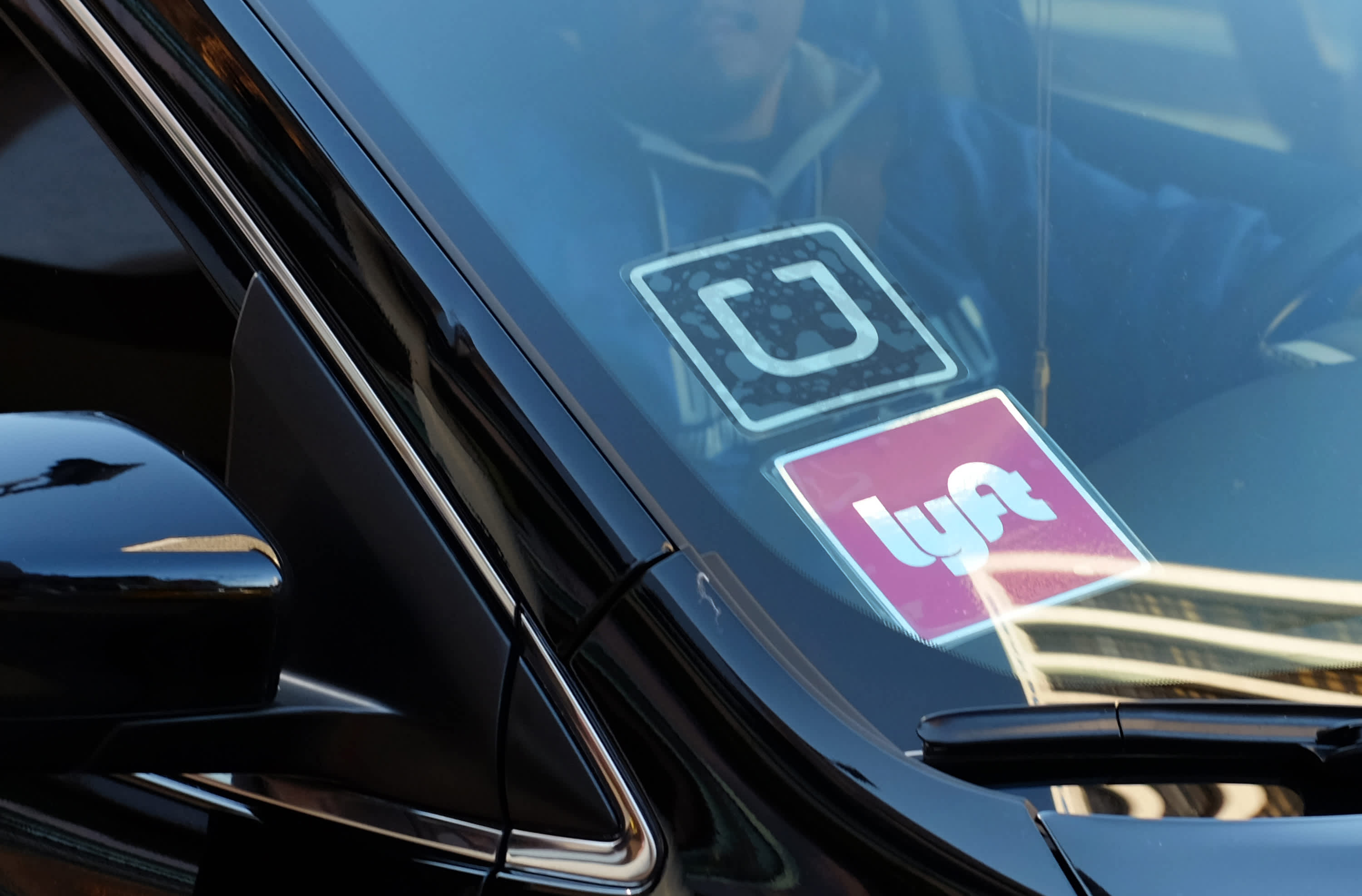California gig economy legislation advances, could shape battle in other states

File photo of a ride-sharing driver displaying Lyft and Uber stickers on his front windshield in downtown Los Angeles.
AP Photo | Richard Vogel
LOS ANGELES — Several states may follow California's lead on proposed gig economy legislation that could add new labor protections for ride-hailing drivers working for Lyft and Uber.
Assembly Bill 5 would essentially write into law standards adopted last year by California's high court to determine whether workers fall under the classification of an employee or independent contractor. Oregon and Washington also have pending bills proposing criteria similar to the Golden State.
The measure could result in thousands of independent contractors getting classified as employees, making them eligible for minimum wages, overtime pay and workers' compensation protections. The bill could impact not only ride-hailing firms but freight trucking companies.
AB 5 passed the California Assembly last week and is now in the state Senate for consideration. California Gov. Gavin Newsom hasn't indicated whether he supports AB 5.
"A lot of workers in California and throughout the nation have been misclassified for years," said Assemblywoman Lorena Gonzalez, D-San Diego, who introduced AB 5 in December. "There's a whole list of things people are entitled to as employees that they don't get as independent contractors — minimum wage, overtime, wage and hour rules, sick leave, paid family leave, unemployment insurance, workers' compensation, and in some instances health care."
The Democratic lawmaker said that the "misclassification" of some workers as independent contractors also impacts their right to organize.
Last month, Uber and Lyft drivers in New York, Los Angeles and several other cities conducted a strike to call attention to low wages and other grievances. Uber has more than 3 million drivers worldwide, and Lyft has over 1 million.
Uber drivers protest in New York's financial district, May 8, 2019. The protests were just ahead of Uber's initial public stock offering.
AP Photo | Mark Lennihan
"Our No. 1 issue is fair wages cause most of us make less than minimum wage after expenses," said Nicole Moore of Rideshare Drivers United in Los Angeles. Moore said others include labor protections and "having a voice on the job."
According to Moore, AB 5 could help ride-hailing drivers by establishing a wage floor if they were considered employees. "For most of us that would mean a significant raise after expenses," said Moore, who drives for both Lyft and Uber. "It would also help us if we were injured on the job."
Uber doesn't support the legislation and has raised concerns about the need to keep flexibility for business and drivers.
"We support efforts to modernize labor laws in ways that preserve the flexibility drivers tell us they value while improving the quality and security of independent work," an Uber spokesperson said in an email statement.
After the California bill cleared the Assembly last week, Lyft also issued a statement focusing on the need for flexibility with labor laws.
AB 5 is supported by union groups and currently grants exemptions to insurance agents, real estate agents, hair stylists and physicians. However, some business groups are pushing for additional carve-outs.
The legislation follows the California Supreme Court decision last year involving Dynamex, a courier service that converted its drivers to independent contractors. There have been challenges to the Dynamex ruling, including from a trucking industry group.
The landmark state court case adopted a so-called ABC test to determine whether someone is an independent contractor. The Dynamex case uses three factors: A) whether the worker is free from the control and direction of the business, B) whether they perform work outside the entity's business, and C) whether they decide to do so independently.
"AB 5 is really codifying the test that the state Supreme Court put into the Dynamex decision last April," said Gonzalez. She said there's still "unease" about the independent contractor issue of from both workers and businesses so the bill is designed "to make it clear."
At the same time, Gonzalez said several other states have looked at, and continue to look at, new laws on the gig economy and may see California as leading the way.
"We see movements on the gig economy in New York and Washington," added Gonzalez. "We know that there's concern out there. Might we provide a level of certainty that other states want to follow — I would hope so."
Washington state and Oregon have bills in legislative committees that would apply a similar test to the one used in California's Dynamex case for independent contractor determinations. In Oregon, several groups have lined up to fight the proposed legislation and argue it would curb start-ups and be a job killer.
Also, Philadelphia is "watching California closely" as it considers its own new gig worker laws, The Philadelphia Inquirer reported last week.
Last year, New York City passed laws that require ride-hailing operators to pay drivers a $17.22 per hour minimum wage. The regulations went into effect in February and a New York judge recently rejected a challenge from Lyft to the wage rules.
Nationwide, just more than 10% of workers rely on the gig economy for most of their income, according to the Gig Economy Data Hub, a project affiliated with Cornell University and the Aspen Institute. The figure counts those individuals getting income from temp agencies and contract work as well as various freelancers and on-call workers.
Read More
No comments